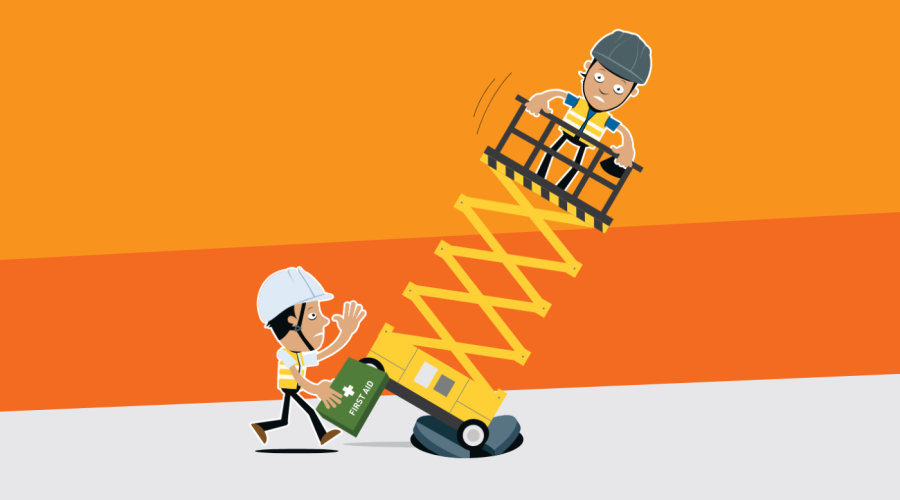Elevation: ‘Sustainable supply chains equal joined-up thinking’

Around 100 attendees enjoyed a high-quality conference line-up, networking and gala dinner, at the third IPAF Elevation, the International Powered Access Federation’s (IPAF) UK member event, at the Whittlebury Park Hotel, Northants, on 18 November. The conference themes were sustainability, effective use of powered access, and engaging with contractors across the supply chain to work more safely and effectively.
After an introduction from Craig Rooke, Managing Director of CTE UK and conference host, celebrating his own 21st anniversary in powered access Peter Douglas, CEO & Managing Director of IPAF, gave a brief update from the federation, including developments such as a new Site Assessment Course, IPAF roadmap to qualified MEWP technician/engineer status, and IPAF’s own drive towards greater sustainability – not least by moving away from using plastic and paper to produce the PAL Card, instead promoting the digital version via the new ePAL mobile app for operators. Accident reporting is also generating reports from almost 30 countries worldwide, and the new IPAF International Safety Committee is reviewing and analysing the data this is gathering. The new Safety Professional membership category is also proving popular report, he reported, with 30 members now joined or in the process of signing up.
Martin Hall, Safety, Health & Environment Director at Morgan Sindall Construction, presented Trials & Tribulations – The Principal Contractors View. Addressing the room of assembled IPAF members and staff, he said: “If it wasn’t for the work that you guys do, as part of IPAF, we’d still be 20 years behind in terms of powered access safety on sites.” He talked about changing demands from the industry and modern construction techniques, propensity for “machine abuse” among untrained construction workers and shared some eye-opening stats about the impact force of objects dropped and falling from height. He said that spending time looking at the free resources on IPAF’s website had been very worthwhile, as “there are so many things on there I didn’t know existed [like Andy Access posters and safety and technical guidance leaflets] that we as a contractor should be using. This stuff that you guys do saves lives,” he added.
Then Dr James Cadman, Head of Consultancy & Carbon at Action Sustainability at The Supply Chain School talked about his organisation and what it does – a free resource and collaboration network to help member companies and partner organisations understand how to do things more sustainably, not just in terms of emissions, environment, and resources, but also in terms of people, social and community elements. The school itself offers all its resources free at the point of access – “we’re kind of like the NHS of sustainability in that respect,” he said. The organisation offers eLearning, short instructional videos and webinars, and can host virtual meetings and seminars on a host of topics within the wider theme of sustainability, “which is rightly or wrongly, on everyone’s agenda now,” he added.
The second half of the conference saw Richard Whiting, IPAF’s UK Market General Manager, give a UK Market Sizing report, effectively an overview or snapshot of the powered access market in the UK, focusing specifically on traditional MEWPs (over 3m) and low-level access machines. The report is published in line with the event and free to download, with headlines being that the UK market is building back well after the pandemic, with none of the market players surveyed saying they expect reduced investment adopted as a countermeasure to the coronavirus situation in 2020 and 2021 to continue in 2022 and beyond. The report also estimated that the share of the UK market that are IPAF members stands at around 82%.
Scott McCall, Net Zero Specialist for Snorkel, considered how a move to greener solutions has influenced products, including things like measuring scope 1, 2 and 3 emissions, explaining or verifying your own carbon efficiency for other members of your supply chain, and the often overlooked measure of “embedded carbon”, whereby a machine may be zero-emissions, but if it is created in and shipped from a carbon-emitting country, that must be taken into account.
He also talked about the UK Government decision to end the tax rebate on red diesel for construction plant equipment from April 2022, and how the policy is aimed at driving the sector away from internal combustion engine-powered machines. “You’ve got to find something that fits your fleet and works for you,” he said.
“It is critical from an OEM point of view that we deliver a product that isn’t rejected by the end user, doesn’t force a change in the way it needs to be used, and offers an engineered solution – though there is no one-size-fits-all answer. If you don’t get this right, you could find yourself left out in the cold,” he concluded.
In addition to the afternoon conference, attendees enjoyed a networking reception and dinner with entertainment from comedian and actor Ted Robbins, best known for his roles in Phoenix Nights, Benidorm and Coronation Street. During the evening almost £2,000 was raised through donations and a charity auction for the No Falls Foundation.
● Visit www.ipaf.org/events for details about upcoming IPAF webinars and events.
